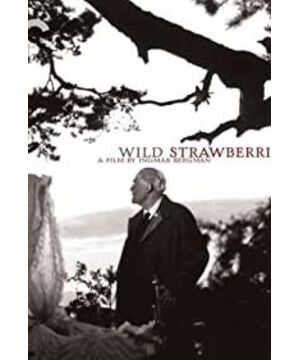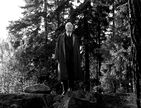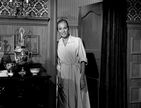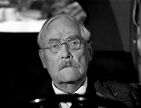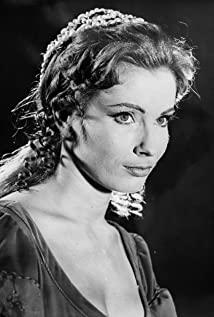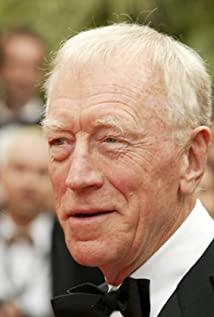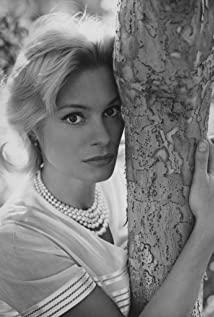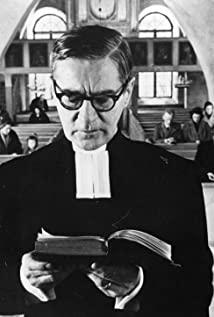The screenwriter and director of "Wild Strawberry" Ingmar Bergman is a famous Swedish amphibious director and outstanding film writer. A series of his important films opened up a new field of film performance and demonstrated new film performance. Possibilities and unprecedented new styles and techniques have made important contributions to the development of modern film art and the innovation of film language. He filmed "The Seventh Seal" (1955) and "Wild Strawberry" (1957) in the mid-1950s, pioneering "author films", "subjective films", "introspective films" and "philosophical films" , Not only won a prominent international reputation for the author himself, but also entered the ranks of modern art film classics. In describing the absurdity that exists in modern capitalist society, human loneliness and pain, the inability to communicate between people, human spiritual crisis and internal conflicts and other themes, the use of stream of consciousness techniques to in-depth exploration of human consciousness and subconscious activities Method, he was several years earlier than Fellini, Antonioni, Godard, and Aaron Renai (for example, Fellini’s "8⅟2" was influenced by "Prison"), this is his world art film The main reason why masters are among the best and highly respected. The 1950s and 1960s was the golden age of his creation. In addition to the awards for "The Seventh Seal" and "Wild Strawberry" at the Cannes International Film Festival and West Berlin International Film Festival in 1957 and 1958, his other films also won Brilliant achievements, such as "The Smile of a Summer Night" won the "Poetic Humor" award at the Cannes International Film Festival in 1956, "The Magician" won the Venice International Film Festival Grand Prix in 1959, and won the U.S. Oscar for best foreign language film four times. ("Still in the Mirror" (1961), "Virgin Spring" (1962), "Winter Light" (1963), "Fanny and Alexander" (1984)), his "Silence" piece was awarded to Sweden in 1963 The Golden Beetle Award from the Academy of Film. A film director has won awards year after year almost without interruption, which is rare in the history of film.
To analyze "Wild Strawberry", we must first understand Bergman's experience and some important creative characteristics. Bergman was born in Uppsala, Sweden on July 14, 1918. His father is a devout Lutheran, and he has served as the pastor of the church and the pastor of the Royal Swedish Hospital. The strong religious atmosphere and almost cruel control have had a profound impact on the formation of his introverted and rebellious character and his future creation. His childhood life, impressions and feelings appear in many of his films in different ways. Therefore, many of his films are autobiographical to varying degrees, although he often denies this. Secondly, with a few exceptions, his films are all self-written and directed. He also has a talented and unchanging creative collective (including actors, photographers and other creative members), who together created a very personal and unique style-Bergman style, so it can be said that he It is the most typical and outstanding representative of the "author's film".
The most important feature of Bergman's films is that his works have his favorite themes. His films almost never leave the discussion of the following three issues: (1) human loneliness and pain; (2) life and death , The relationship between good and evil; (3) Whether God exists. "Wild Strawberry" has been exposed to these three issues to varying degrees. The film describes the professor of medicine (most of Bergman’s protagonists are middle- and upper-class intellectuals: professors, writers, painters, musicians, actors, etc.) Ergo's loneliness, indifference, and pain, he and his mother, son, daughter-in-law, and housekeeper do not understand each other and have difficulty communicating with each other. Although he has done a lot of good things in his life and practiced medicine in the neighboring area for many years, people remember and appreciate him, and he has also made outstanding achievements in medical science research, but his heart is lonely, empty and painful, and finally lonely. To die. Death is Bergman's favorite theme, and most of his main protagonists are fateful and unhappy. He described the death of Isaac in a soft, warm, and graceful tone, and described the death of Agnes ("Screams and Whispers") in a tragic, austere, and cruel tone. For the existence of absurd pain, death is undoubtedly a good relief. Although Bergman's films often have a strong religious mystery, the question of "whether God exists" seems to show a process from doubt to denial. In "Wild Strawberry", "The Seventh Seal", "Still in the Mirror", "Winter Light" and other films, the protagonists repeatedly asked this question: Does God exist and why is God silent? In "Fanny and Alexander" (1984), Bergman adopted a very clear critical attitude towards religion and God. Here, God has become a "big puppet with no friends and a puffy face", and the representative of God, Bishop Virgilos, is a downright villain, an incarnation of evil, and a brutal eroticism, who was burnt to death in the end. It is not accidental that this bishop has the same name as the fascist in "Snake Egg".
In terms of narrative style, "Wild Strawberry" breaks the traditional linear structure and adopts a multi-theme, multi-clue, and multi-level polyphonic structure. Its story frame is that the protagonist Isaac himself directly tells the audience about his "journey", that is, the journey in real space from Stockholm to Lund to receive the honorary doctorate title. Time is from now to the future; its deep level The structure is Isaac's free gallop in his vast psychological space, time is from the present to the past. These two clues intersect, line up, or jump, and they change suddenly, which is eye-popping. The most famous scene is the scene where the elderly Isaac and the young Sarah meet in a wild strawberry field. In this scene, Bergman juxtaposes the past and the present, dream and reality in one frame, and allows the two to talk to each other. This should be said to be a kind of originality in the 1950s, because the traditional "flashback" does not have such a temporal and spatial alignment.
Bergman's creation was obviously influenced by the philosophical trends of modernism and existentialism. However, in the mid-1950s, this effect was not very strong. Esaac's son Aywald, despite his disgust with life, thinks that existence is absurd, adding new victims to this absurd world is even more absurd, he demands death, absolutely complete death. But he is not a complete existentialist after all. At the end of the film, he and his wife Marianne made up, and Marianne saved his child. They also reconciled with Isaac kindly. For Bergman, this is a rare comforting ending. This is related to the fact that in the mid-1950s, the existentialist trend of thought has not yet formed a general climate in Western film art. In the early 1960s, Antonioni’s "Emotional Trilogy", "Adventures", "Night" and "Eclipse", Fellini’s "8⅟2", Aaron Rene’s "Last Year in Marienbad", Godard's "Exhaustion" came out one after another, shocking the world film scene with their existential philosophical connotation and modernist techniques. Bergman also turned from inner realism or semi-realism to modernism at this time. He filmed the "silent trilogy", "Still in the Realm", "Winter Light", "Silence" and later Films such as "Mask", "Wolf's Moment", "Anna's Passion", "Shouting and Whispering", "Face to Face" and other films have a very strong modernist color. They are obscure in content and complicated in form, making it difficult for the general audience to understand. Modernist critics refer to the above-mentioned films, which were shot only for a few intellectuals, as "elite films." The emergence of "elite movies" has extremely complicated historical reasons. Since the second half of the 1970s and the 1980s, Western movies have entered a postmodernist period. Bergman's "Fanny and Alexander", Aaron Renai "Melodrama" is a sign that they have entered this new era.
Dream is one of Bergman's important play elements. With the help of dreams, he can go deep into all areas of mind, consciousness and subconsciousness, without being restricted by reason, logic, sequence, time and space, etc. The basic plot of "Wild Strawberry" is composed of five fairly long dreams, with a terrible nightmare at the beginning and a quiet and beautiful dream at the end. Some commentators even believe that all Bergman's films are variations of the same dream. Bergman highly praised his predecessor Strindberg's "A Drama of a Dream", he had put it on stage three times, and made it into a television film in the early 1980s.
Metaphors and symbols are important means of expression by Bergman, even though he said he never uses symbols. There are rich metaphors and symbols in "Wild Strawberry": "Nightmare" symbolizes the approaching of his end. The wall clock has no hands, and neither his pocket watch nor his mother's old gold watch has hands to metaphorically indicate that his time has passed. In the end, pointers are useless to him. The wild strawberry is his favorite symbol. It symbolizes all beautiful things: life, youth, love, happiness, light, ideals and so on. In "Wild Strawberry", the surreal atmosphere that Bergman pursues is almost perfectly embodied by Fisher's photography. Fisher's photography has an obvious expressionist style: through dark and dim lighting, peculiar shooting angles, and varied tonal processing, it reflects the protagonist's anxiety and fear of loneliness. This famous photographer who specializes in black and white photography began a more than ten-year collaboration with Bergman in 1948, shooting a series of films such as "The Smile of Summer Night", "The Seventh Seal", and "Wild Strawberry" , Reached a high degree of integration in understanding Bergman’s creative intentions.
The last thing that should be mentioned is Victor Sjostrom (1879~1960), the actor of Isaac Polger in this film. This film can be said to be specially created for this Swedish actor and director with rich acting experience. Bergman said that when he wrote the role of Isaac, he considered its actor. After seeing the script, Sjostrom didn't want to play it, but after repeated persuasion by the producer, he agreed. Actors and characters are real peers, and there is no doubt that they have similarities in psychology and character. His highly simple, true and natural performance without performance is harmoniously integrated with the sentiment and atmosphere of the whole film.
View more about Wild Strawberries reviews


